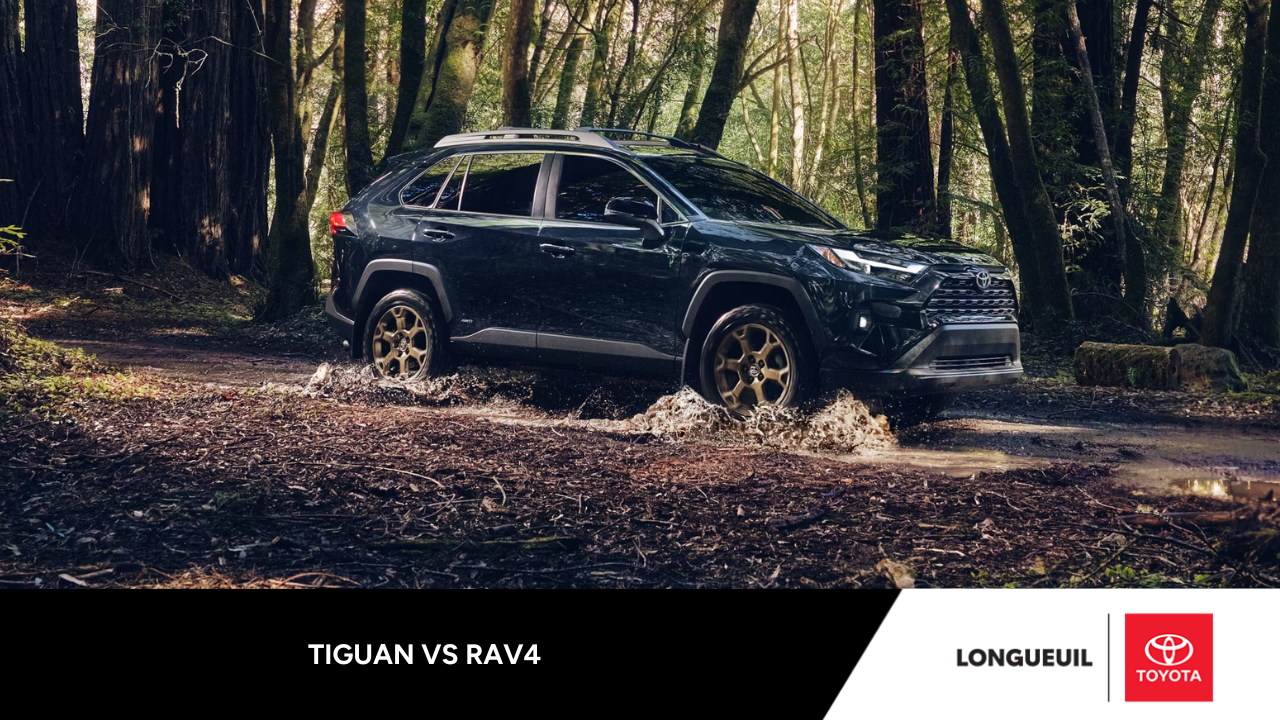
Tiguan vs RAV4: SUV Comparison
If you're searching for the ideal SUV, you've likely considered the RAV4 or the Tiguan. Two SUVs that offer many advantages, discover which one...
Read more
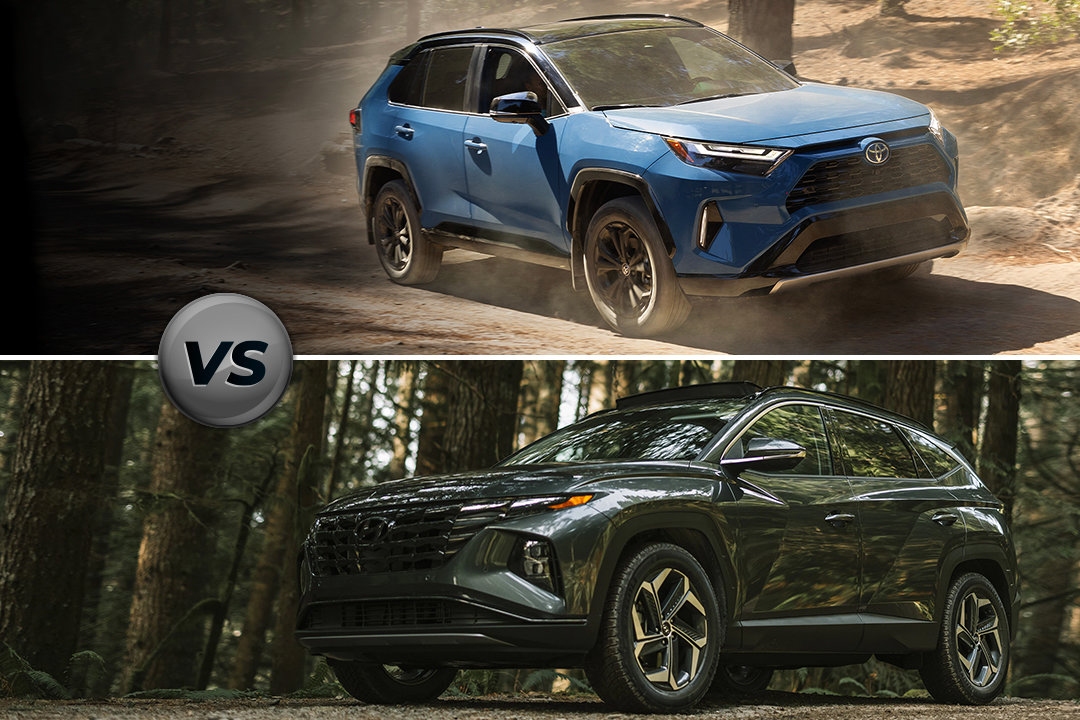
Choosing a good vehicle is becoming increasingly difficult, not because of the quality, but rather since there are more and more options to choose from. So, how can you determine which vehicles represent the best options, when it comes to price-quality ratio?
Your Toyota dealership in Longueuil, close to Boucherville and Brossard, has prepared this comparison between the Toyota vs Hyundai manufacturers; read on to find out more about these 2 brands!
Toyota Motor Corporation was born in the 1930s and commercialised its very first vehicle, the Model AA, as early as 1936. It was later, in 1957, with the compact Toyota Crown that the Japanese manufacturer took the North American market by storm.
The arrival of the Toyota Corolla on the market, in 1966, followed by other high quality yet affordable models, contributed to solidifying Toyota’s reputation for reliability; and in early 2000s, the launch of the very first hybrid vehicles like the Prius, allowed Toyota to become a true reference in the industry.
When it comes to Hyundai, the company was born in 1947 and focused solely on civil engineering, mining operations and shipbuilding at first. It took 20 years for the first car, the Hyundai Cortina, to be commercialized in a partnership with Ford; the very first Hyundai models in North America arrived during the early 80s and quickly seduced buyers for their affordable price.
Hyundai is now among the most popular car manufacturers in the world and includes a vast selection of fuel, hybrid, plug-in hybrid and electric models.
When comparing Toyota vs Hyundai sales, it is easy to see that Toyota is much more popular than Hyundai on the Canadian market; however, the South Korean manufacturer is right on its heels.
So, if we look at the top 10 most sold vehicles in Canada in 2022, we can see that the Hyundai Elantra (10th, with 24,559 units sold) and Kona (9th, with 24,579 units sold) are lagging behind the Toyota Canada’s most successful models, which are the Corolla (6th, with 33,096 units sold) and RAV4 (3rd, with 55,921 units sold).
Toyota and Hyundai both offer a good selection of models; however, the South Korean manufacturer does not offer any truck models except for the Santa Cruz, which is somewhere between an SUV and a compact truck. Moreover, there are more hybrid Toyota models, mostly thanks to the Prius family, and several electric Toyota vehicles are either already available on the market (see the Toyota bZ4x specs) or will be very soon.
| Toyota | Hyundai | |
|---|---|---|
| Cars | 6 | 2 |
| SUVs | 5 | 4 |
| Minivans | 1 | 0 |
| Trucks | 2 | 1 (Santa Cruz) |
| Hybrid models | 12 | 4 |
| Plug-in hybrid models | 2 | 2 |
| Electric | 2 | 3 |
The Toyota vs Hyundai base prices are relatively similar, which contribute to their popularity among buyers.
| Toyota | Hyundai | |
|---|---|---|
| Cars | $ 25,471 - $ 60,891 | $ 22,956 - $ 41,756 |
| SUVs | $ 29,241 - $ 54,841 | $ 23,306 - $ 61,006 |
| Minivans | 45101 | N/A |
| Trucks | $ 44,301 - $ 54,401 | $ 43,456 - $ 50,256 |
| Hybrid models | $ 29,371 - $ 81,911 | $ 31,806 - $ 48,306 |
| Plug-in hybrids | $ 41,031 - $ 52,901 | $ 52,156 - $ 52,406 |
| Electric | $ 47,941 - $ 56,431 | $ 47,252 - $ 57,652 |
Some studies show that Toyota is the vehicle brand with the lowest maintenance costs, with an average of $ 5,500 over 10 years. When it comes to Hyundai, costs over a decade are higher, with $ 8,700.
Toyota vehicles are often considered to be among the most reliable of the automotive industry, just like Hyundai models. But according to a study completed by JD Power that shows the different levels of reliability and durability according to car manufacturers, Toyota is in 7th position with 168 PP100 (problems for 100 vehicles); Hyundai follows very closely, with 170 PP100. Take note that the average in the industry, is 186 PP100.
Different powertrains are used both on Hyundai and Toyota vehicles, and they stand out for their efficiency and performance. When it comes to Hyundai, we can see that all powertrains combined, power ranges between 121 and 320 horsepower, while for Toyota (trucks excluded), power varies depending on model, and ranges between 138 and 427 horsepower.
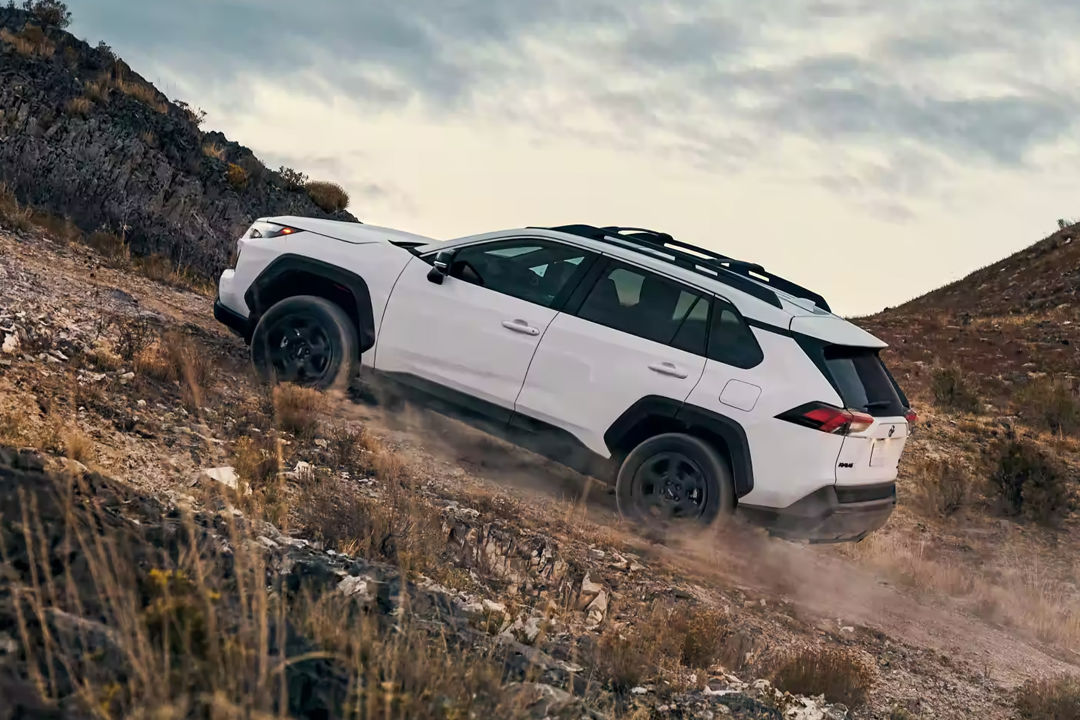
Toyota vehicles are known for their outstanding energy efficiency. Here is a sneak peek of the different Toyota models that are the most energy efficient. Hyundai remains very energy efficient as well, with several models that come neck to neck with those offered by Toyota, when it comes to fuel consumption.
The amount of on-board technologies and safety features is truly impressive, both with Toyota and Hyundai. The Japanese manufacturer, however, has the advantage over its South Korean rival in many instances; let’s compare, for example, the entry-level trims of the RAV4 and the Hyundai Tucson.
The RAV4 has a standard offered wireless access point, but the entry-level trim of the Tucson does not; the same thing is true for the amount of USB ports (5 vs 2), SiriusXM, the vehicle tracking system, road sign recognition, adaptive cruise control and blind spot surveillance, which are all standard offered equipment on the entry-level trim of the RAV4, but not on the equivalent Tucson trim.
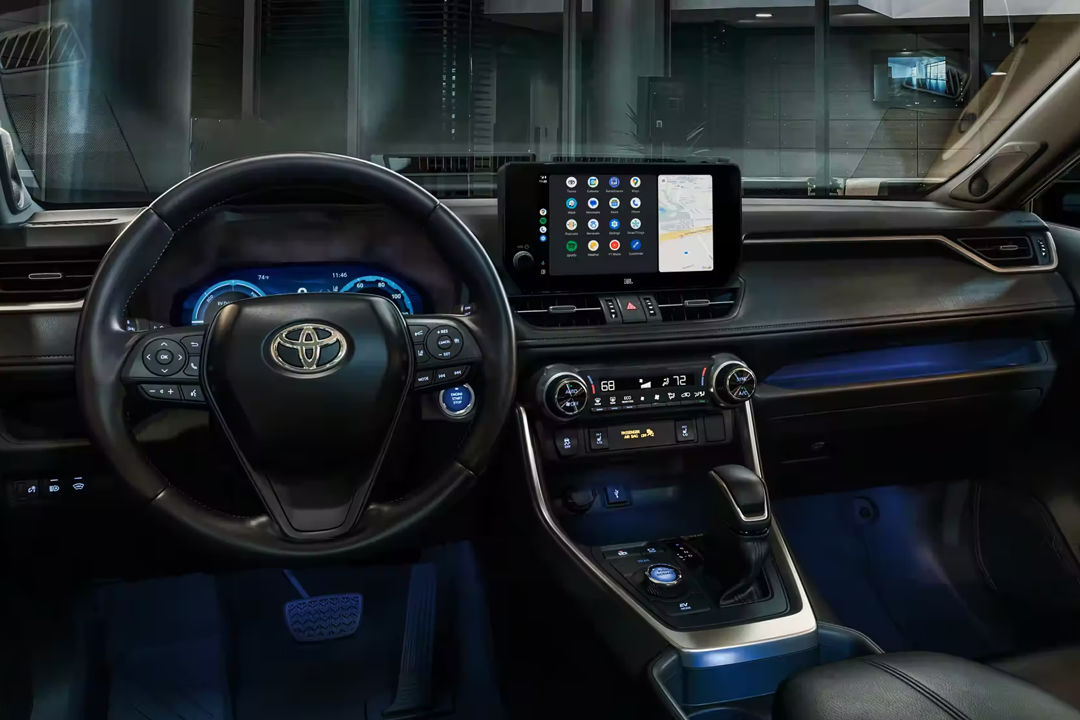
Our comparison between the Toyota vs Hyundai shows that both of these manufacturers offer quality, affordable and energy efficient models, but that Toyota stands out from its rival in many ways; come and visit us at Longueuil Toyota to find out more about the advantages our vehicles offer!
Moreover, get more information about our financing options and Toyota special offers in Longueuil!
| Toyota RAV4 | Hyundai Tucson | |
|---|---|---|
| Price Range | $ 35,541 - $ 48,801 | $ 36,856 - $ 46,656 |
| Available Hybrid Trims | Yes | Yes |
| Drivetrain | AWD | FWD or AWD |
| Power | 203—302 horsepower | 187—261 horsepower |
| Consumption (Highway) | 6.3/7.1 L/100 km | 6.6/7.9 L/100 km |
| Cargo Space in Trunk | 1,059—1,977 liters | 902-2,119 liters |

Tiguan vs RAV4: SUV Comparison
If you're searching for the ideal SUV, you've likely considered the RAV4 or the Tiguan. Two SUVs that offer many advantages, discover which one...
Read more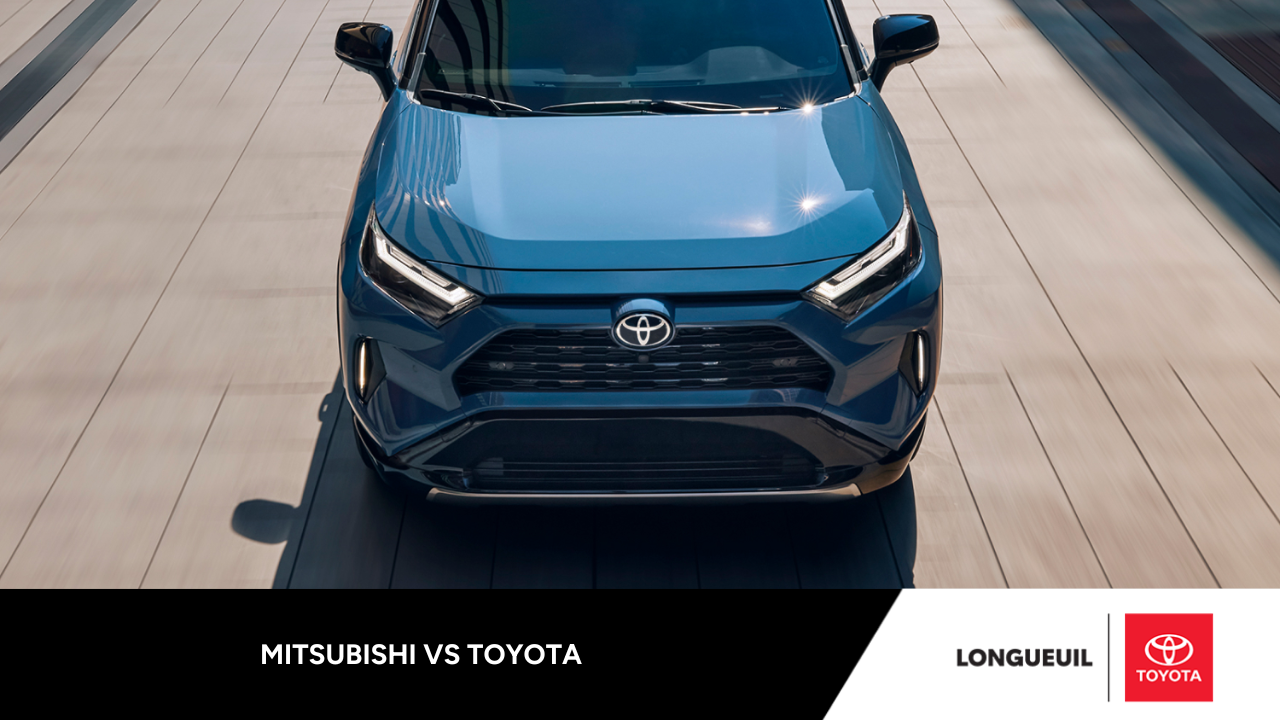
Comparison: Mitsubishi vs Toyota - Making the Right Choice
Are you in the market for a new vehicle and undecided between Mitsubishi and Toyota? We've compiled this comparison to help you differentiate...
Read more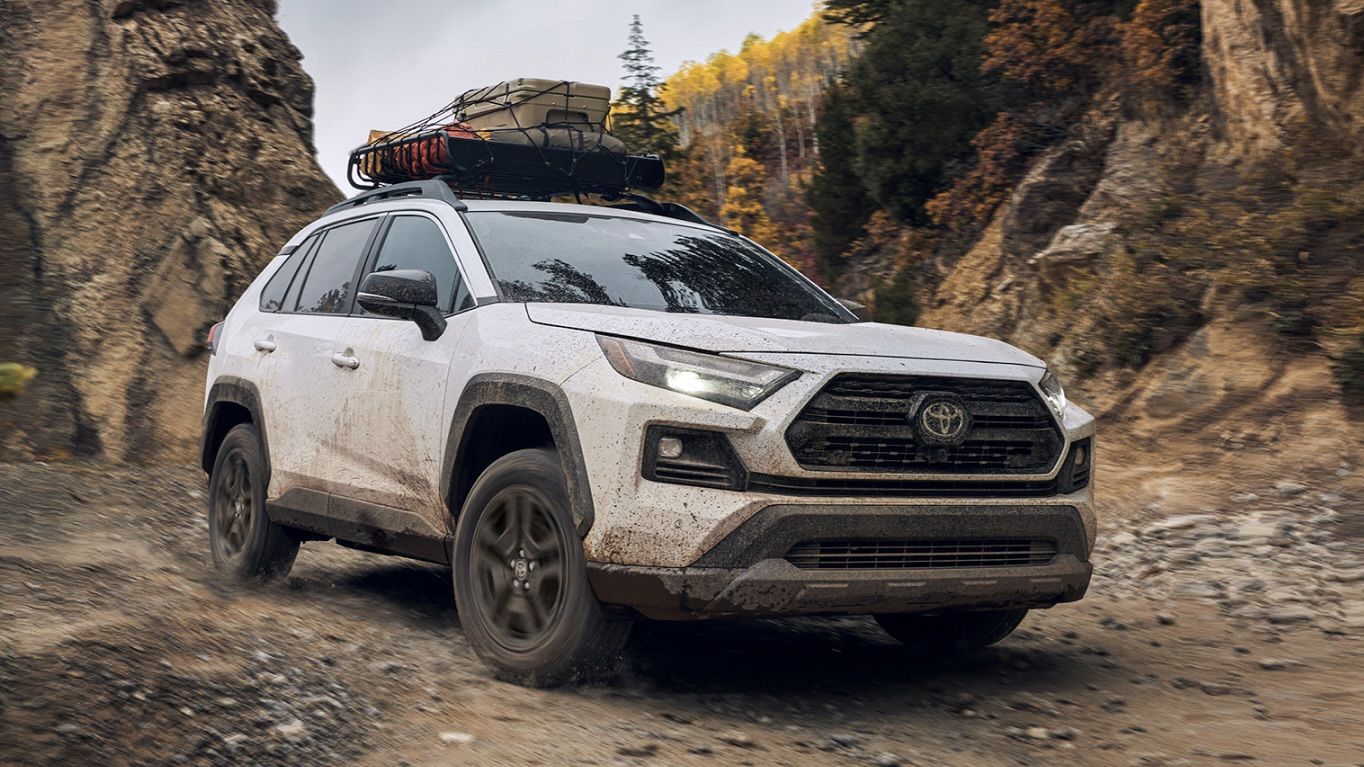
Toyota RAV4 2025 Pricing and Specifications
The Toyota RAV4 and Toyota RAV4 Hybrid, offered at a highly competitive price, are versatile and efficient SUVs that are agile enough for enjoyable...
Read more